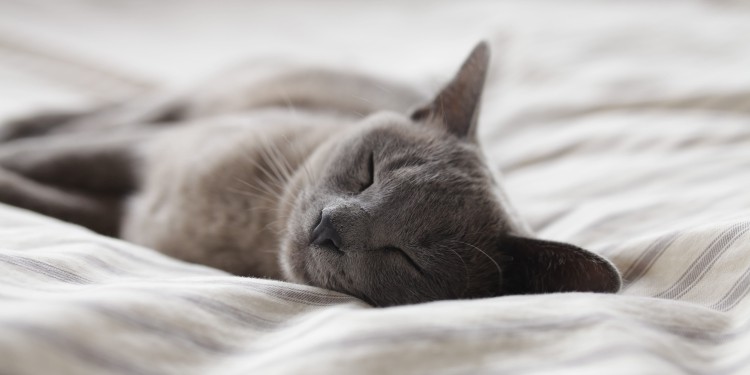
Sleep Better
Photo by Alexander Possingham on Unsplash
Sleep is an obvious fact of life, however, its details remain ambiguous to the most notorious scientists. It is currently being studied in detail to allow us to better understand it and ultimately improve our sleep habits. Dreams are even more elusive, but some scientists have figured ways out to explain how certain brainwaves read during sleep indicate a certain event during sleep such as driving, talking etc.. Nevertheless, scientists were able to understand more facts about sleep due to studies on brain waves using polysomnographs and electroencephalographs (EEGs), which enabled us to illuminate some facts about sleep and its various stages.
Stages of sleep
There are four main stages in a single sleep cycle, which can repeat 4-6 times in a single night. The completion of the various stages is important to obtain restful sleep and the disruption of any stage can lead to unrestful sleep. Our circadian rhythm (sleep-wake cycle) is influenced by melatonin, cortisol and adenosine levels. Melatonin levels vary during the day and peak at 9 pm before sleep & start to decrease by 3 am. Each sleep cycle lasts about 90 mins & lengthens during the night. It is important to note that the circadian rhythm varies from person to person and that is why we have night owls & early birds!
A single cycle of sleep is split into four stages:
- First stage: non-random eye movement (NREM) or N1 is the stage where you first close your eyes & drift into unconsciousness. This stage lasts 5 minutes and you can be awakened really easily as you switch between wake & sleep.
- Second stage: NREM 2 or N2 is the stage where the temperature of the body drops by 1-2 degrees Celsius, mediated by the thermoregulatory centre in the hypothalamus. Brain activity, breathing rate and heart rate decrease at this stage. It lasts 10-25 minutes and gets progressively longer during the night.
- Third stage: NREM 3 or N3 is the stage where you enter the deepest stage of sleep & it's harder to wake someone up at this stage. The brain waves at this stage are called delta waves. This stage is essential for growth & recovery
- Fourth stage: REM sleep duration is variable and it extends throughout the night. This stage of sleep is essential for learning and other cognitive functions. An experimental study showed that disrupting REM sleep can lead to hallucinations and impaired cognitive functions.
Whilst sleep at night is essential (I am sure night owls will disagree), naps can be the perfect addition to compensate for sleep debt or even bloom creative ideas! It is a well-known fact that many scientists got ideas about their inventions after a short nap whilst working! In addition, a study showed that people who napped after lunch had higher memory abilities and better performance in maths quizzes. You can have a power nap at any time of the day but napping after lunch seems to be the most popular & effective choice.
Here is our IG post on Sleep & its stages:
Factors that affect sleep
There are many factors which can prevent you from having a good nights sleep
- Drugs & Coffee: sleeping pills + Caffeine (especially for people sensitive to caffeine intake) have been shown to affect REM sleep significantly leading to lethargy in the next day. It is not advised to take sleeping pills as they only act as sedatives and do not induce “Sleep”
- Travel: travel can induce Jet Lag as you move to different time zones. If it is nighttime where you are & late afternoon in your country then you might find it difficult to fall asleep as your melatonin/cortisol levels have not adjusted.
- LED (blue) light: blue light reduces melatonin levels & hence can reduce the quality of sleep you get.
- Temperature: since your body temperature drops when you sleep, anything which accelerates this drop in temperature will most likely help you sleep.
Sleep hygiene
We have mentioned some of the factors which can influence sleep above, but how can we get better quality of sleep?
- Sleep & wake at the same time, this is the single best thing that you can do to get more restful sleep. Shifting your sleep time greatly affects the quality of your sleep.
- Find a cool place to sleep or take a warm shower. Whilst it might seem counterintuitive to shower, it actually causes your blood vessels to dilate and release heat from your body, which cools you down
- Remove LED light sources 30mins-1hr before sleep, blue light reduces melatonin levels which are required to induce sleep
- Avoid coffee if you are highly intolerant to it or drink decaf closer to your sleeping time
References:
- Why We Sleep, Matthew Walker.
- https://www.scientificamerican.com/article/the-science-behind-dreaming
- https://www.sleepfoundation.org/how-sleep-works/stages-of-sleep
- https://www.scientificamerican.com/article/fact-or-fiction-can-you-catch-up-on-sleep/
- https://www.mayooshin.com/science-on-how-to-take-the-perfect-nap/
- https://www.famousscientists.org/7-great-examples-of-scientific-discoveries-made-in-dreams/
Happy Learning,
TST team.




